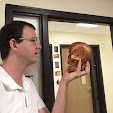This chapter finds its exigency and momentum in stories and anecdotes from Welch's own experiences and from one of her students. She turns to theories, for the most part, to highlight the inadequate responses they've enabled their proponents to articulate in the face of serious political realities.
What Welch advances is a pedagogical imperative that students be offered in writing classes opportunities to practice the full range of rhetorical strategies that mightenable them both to investigate questions/issues and to represent (and defend) their answers to a publics that might not agree with them.
This text challenges me to more fully engage students with the rhetorical possibilities of audience and argument to take up more thoughtfully and carefully with them issues of disagreement and clear opposition and how to respond to challenges they might encounter, especially when voicing minority views ( for example, opposition to war in the midst of "patriotic zeal").
